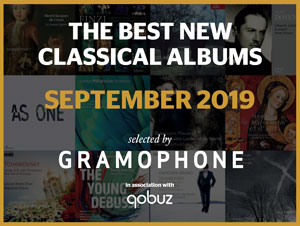Prokofiev: Betrothal in a Monastery at MusikTheater an der Wien | Live Review
Mark Pullinger
Thursday, March 27, 2025
Damiano Micheletto has a lot of fun with his subject, bolstered by a largely Russian cast who milk it with style
⭐⭐⭐⭐


Valery Gilmanov as Mendoza and Stacey Alleaume as Luisa in Betrothal in a Monastery at MusikTheater an der Wien (Photo: Werner Kmetitsch)
If a giant animatronic fish, zombie chefs wielding knives and boozy monks in high heels and suspenders tick your boxes, then get thee not to a nunnery, but to a monastery instead. MusikTheater an der Wien presents Prokofiev’s comic opera Betrothal in a Monastery, directed by Damiano Micheletto, who has a lot of fun with his subject, bolstered by a largely Russian cast who milk it with style.
The music is largely unfamiliar – although the composer later made an orchestral suite under the title Summer Night – but it is instantly recognisable as Prokofiev, with sarcastic woodwind chords, chugging percussive rhythms, sweeping strings straight out of Cinderella. The plot, however, is entirely familiar, drawing on opera buffa tropes: forced marriage, characters in disguise, a serenading tenor, the women outwitting the men. We’re not a million miles from Rossini’s Barber of Seville… indeed the opera is even set in the same city.
Prokofiev and his librettist (and soon-to-be second wife), Mira Mendelson, based Betrothal in a Monastery on Sheridan’s comedy The Duenna. Mendoza, a rich fish merchant, is seeking a bride, while the nobleman Don Jerome is seeking a suitable match for his daughter, Louisa. The two men strike a deal – despite Mendoza never having met Louisa – that will see Jerome handsomely supplied with fish. Louisa, alas, is already in love with penniless Don Antonio, and her brother, Don Ferdinand, is in love with her friend Clara d’Almanza, setting up the plot for a double elopement, engineered by Louisa’s duenna (governess), who acts as chaperone. The Duenna, disguised as Louisa, is wooed by Mendoza and the double wedding in the monastery is turned into a triple celebration, at which point Jerome and Mendoza realise they have been well and truly duped. If all that sounds complicated to follow, honestly it’s not.
Michieletto’s staging, a co-production with Dutch National Opera and, appropriately, the Teatro de la Maestranza in Seville, is a hit. Paolo Fantin’s set – a clever construction of sliding doors to create new spaces – keeps the action flowing from scene to scene, although it is lit by a neon frame that frequently blinds the eyes. (Seriously, does Michieletto own shares in neon? They blight his every production.)


Evgeny Akimov as Don Jerome in Betrothal in a Monastery at MusikTheater an der Wien (Photo: Werner Kmetitsch)
Fish feature large, very large in the case of a giant slippery creature that haunts a nightmare sequence in which Jerome ends up with his head forced into its mouth. When its skeleton returns to terrify the wedding guests in the finale, Jerome is unperturbed, merrily tapping out a ditty on a set of tuned glasses. Michieletto has fun with the monks – decidedly Russian Orthodox – especially when the nuns from the convent where Clara has taken refuge join them for an orgiastic celebration of beer.
The cast is led by tenor Evgeny Akimov as Don Jerome. He knows this opera inside out – back in 1997 he recorded the role of Don Antonio at the Mariinsky with a fresh-faced Anna Netrebko as Louisa – and relished the comedy thrown his way, lapping up the laughter, pinging out his lines in plangent voice. He was the perfect foil for Valery Gilmanov’s booming Mendoza, whose gurning and double takes heightened the caricature. Elena Maximova, despite being announced as indisposed, sang fruitily as the Duenna, hamming up the scene where Mendoza woos her.
Vladimir Dmitruk and Petr Sokolov threw plenty of ardour into Antonio and Ferdinand. Australian-Mauritian soprano Stacey Alleaume, sunny-toned but a little small-scaled in voice, was nonetheless a charming Louisa. Anna Goryachova seemed vocally miscast as Clara, the role lying a touch too low for her essentially light mezzo, but she made the most of her character’s histrionic despair. Among the smaller roles, Zoltan Nagy’s lovelorn Don Carlos (Mendoza’s sidekick) was terrific, as was sepulchral bass Sorin Coliban as Padre Augustin, flashing his stockinged legs and happy to accept bribes to perform the double wedding, a fat payday for the priests, the men of the Arnold Schoenberg Choir camping it up gloriously.
In comedy, timing is everything and Dmitry Matvienko led the ORF Radio-Symphonieorchester Wien through the clockwork precision of Prokofiev’s whirring score. I imagine the majority of the audience were encountering this opera for the first time on stage. It deservedly made a lot of friends.
Until 9 April theater-wien.at









